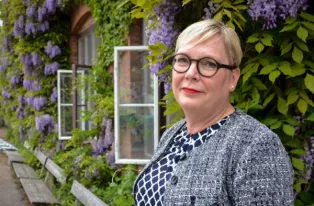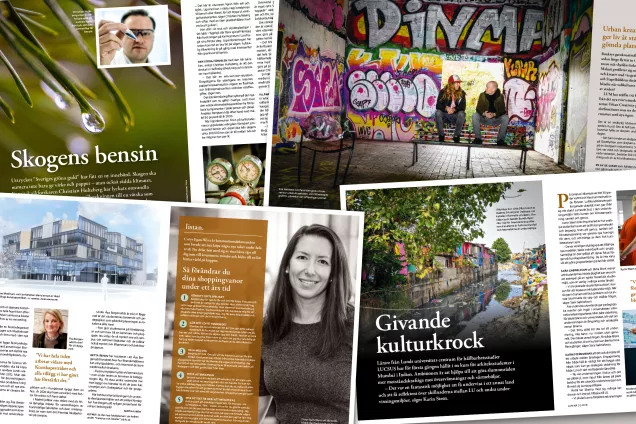The report on widening participation at LU is not complete, although the figures are already in place. Now reflections from the organisation are being compiled, along with examples of activities that are already being implemented.
“At LU, we often find it difficult to understand what reality is like only an hour’s travel away. In Bjuv, for example, there are many school pupils who do not know what higher education is and who have never been to Helsingborg, let alone Lund”, says Gunilla Carlecrantz, who is the project manager for LU’s central initiative to promote widening participation and recruitment, together with others including Leif Bryngfors.
Since the 1990s, Sweden’s higher education institutions have been tasked with making higher education accessible for more students with diverse backgrounds. At LU, broadening recruitment entails trying to make the University an option even for students whose parents have a low level of education, for students with an international background, or those who live in a municipality where few people go on to higher education, such as in the countryside or in old industrial communities. The task is also to attract men to predominantly female study programmes and vice versa. Widening participation is about ensuring that more people complete their studies and feel included during their time as a university student.
“Childhood dreams can come true in Sweden today and all children should get the chance to feel this. But it requires them to see it as a real possibility for them”, says Gunilla Carlecrantz.
That LU students are younger than the average student in Sweden probably depends on the length of our study programmes. We have many long programmes, while there are fewer and fewer freestanding courses. Older people who are already working need shorter study programmes that can be adapted to their available study time.
LU is implementing a series of initiatives at the faculty and degree programme level that are producing results, but there is no larger approach for the whole University. No funding has been set aside centrally to run diversified recruitment, but in 2017 a collaboration was started with parties including Region Skåne, municipalities and Malmö University which also aim to eliminate biased recruitment.
“In this way, Lund University becomes a cog in the wheel. We are to latch on to work that is already being done, together with other regional stakeholders we are also applying for shared funding, everything from EU funds to individual donations. We hope for both major flows and small trickles.”
There is agreement in the regional work that children need to be reached earlier than they are today, from preschool and upwards. LU is now starting collaborations with partner schools located in municipalities where few young people go on to higher education, such as Klippan and Sjöbo.
“Now we are going out to discuss with municipalities and school principals, to find activities where LU can contribute and reach children earlier in Bjuv and Perstorp, for example. These initiatives are things like a visit to Vattenhallen or having a student contribute to a summer school or summer camp.”
For a long time already, LU has been regularly sending out supplemental instruction (SI) mentors to secondary schools around Skåne. “Girls in Engineering” is another project that has existed for over 30 years, with the aim of attracting more female students to the Faculty of Engineering. Now the “Create your future” project is being revived by Campus Helsingborg, which is working actively on widening participation. The project is based on students who have grown up in areas where few go on to higher education return to schools in places such as Lindängen, Rosengård, Bjuv or Klippan. Mohammed Taha grew up in Rosengård and was involved in “Create your future” as a student at the Faculty of Engineering. He now takes a couple of hours out of his working week to be part of the project once more.
“It is so important for the young people to be able to identify with the student who comes to speak at their school. I usually tell them that my secondary school grades were not high but that I managed anyway”, says Mohammed Taha.
He tries to encourage the pupils to dare to be different – to dare to be the one who studies a little every day. It is about changing attitudes.
“I used to ask the pupils whether they knew that university studies are free in Sweden, that they can get an education that is worth half a million crowns if they take the chance. And that they can get almost 3000 crowns per month at the same time”, says Mohammed Taha, adding that this perspective is often new – and important – to the pupils.



